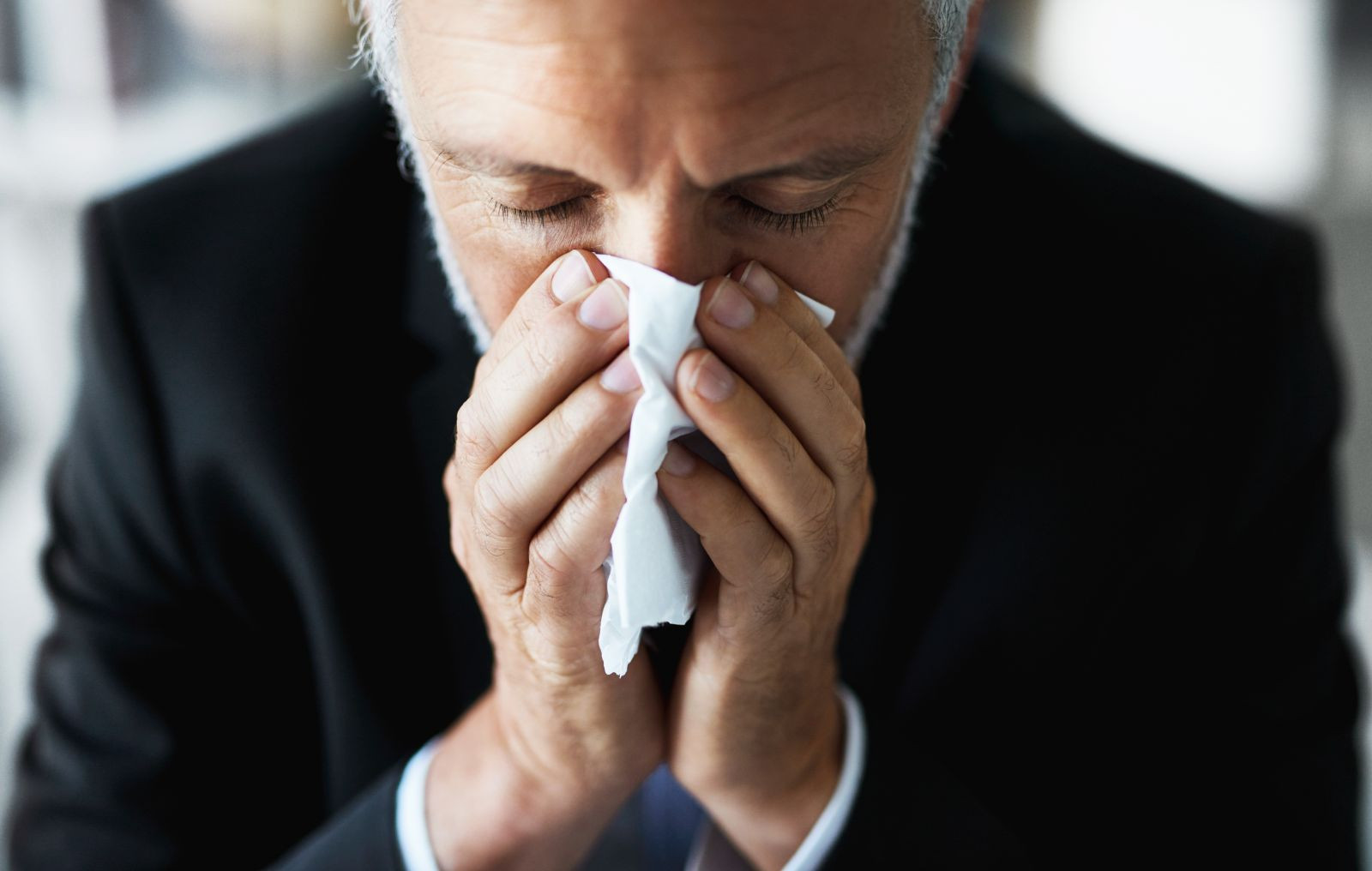
Celiac disease: Exploring four myths

What is prostatitis and how is it treated?

What is Cushing syndrome?

Exercises to relieve joint pain

Think your child has ADHD? What your pediatrician can do

Foam roller: Could you benefit from this massage tool?

Stepping up activity if winter slowed you down

Common causes of cloudy urine

Dragon fruit: How to enjoy this antioxidant-rich fruit

Are you getting health care you don't need?
Allergies Archive
Articles
Should I worry about a sudden swollen tongue?
On call
Q. What would cause my tongue to suddenly swell? Could this be a possible side effect of medication, or something else?
A. There are many reasons for a swollen tongue. Indeed, a reaction to a medication is one of the more common causes. For example, a well-known side effect of ACE inhibitors (a class of drugs used to control blood pressure) is a condition called angioneurotic edema. Swelling of the face, lips, and tongue can happen quickly in people who take an ACE inhibitor. The reaction may occur soon after it's first taken or at any time thereafter. Sometimes people get this reaction even though they have used the drug for several years. ACE inhibitors are more likely to cause angioneurotic edema in African Americans.
Is it a cold or allergies?
Ask the doctors
Q. I feel like I have a perpetual cold all winter, every winter. I'm stuffy and sneezy and it never seems to get better. Do you think it could be allergies? How can I tell the difference?
A. Colds and allergies produce many of the same symptoms: a runny nose, tiredness, and sometimes a sore throat. But they have different causes — a virus causes colds, while allergies are an immune system response to trigger substances, known as allergens. There are ways to distinguish one from the other. Colds sometimes produce a fever, but allergies never do. In addition, if you are suffering from allergies, you may also have itchy, watery eyes, symptoms that won't typically accompany a cold. But perhaps the biggest clue that can help you distinguish between a cold and allergies is the duration of symptoms. Cold symptoms rarely last more than two weeks, but allergies can last as long as you are exposed to the substance that is triggering the reaction. So, if your "cold symptoms" appear at the same time every year and last for an extended period of time, the cause may very well be allergies. Many people with seasonal allergies will experience symptoms for six weeks at a time. If you are allergic to something in your home, such as dust mites, mold, or pet dander, your symptoms could get worse during the winter months, because the house is sealed up and fresh air isn't getting in. In addition, your heating system may be recirculating the allergen. Because your symptoms last for an extended period of time, it may be worth a visit to the allergist.
How can I know if my penicillin allergy is real?
People who are allergic to penicillin are often given less effective medications that can make them more susceptible to infections, but many people who believe they are allergic to penicillin are not. New techniques are allowing medical providers to assess whether or not a person has a true penicillin allergy.
Epinephrine is the only effective treatment for anaphylaxis
Many people have experienced mild allergic reactions to a food, medication, or other allergen, but a severe reaction can be harmful or even fatal. Anaphylaxis must be treated with epinephrine as quickly as possible, followed by a visit to a hospital emergency room for observation.
4 "must dos" for kids with seasonal allergies
Many children look forward to warm, mild spring weather, but kids with seasonal allergies (also known as hay fever) might not. Hay fever can interfere with a child's ability to play outdoors, and it can just plain make them feel miserable. These tips can help your child cope with allergy season — and they work just as well for adults, too.
Think your baby is allergic to cow’s milk?
Babies who show certain digestive symptoms may be incorrectly diagnosed with cow’s milk allergy and put on special diets, although this allergy is uncommon.
Two common prescription drugs now available over the counter
News briefs
On Feb. 14, 2020, the FDA announced that two popular symptom-relief drugs can now be sold without a doctor's prescription. One is diclofenac sodium topical gel, 1% (Voltaren Arthritis Pain), which is used to temporarily relieve arthritis. The other is olopatadine (Pataday), which comes in eye drop form (in two strengths, for once-a-day or twice-a-day dosing) to relive itchy or red eyes from pollen, ragweed, grass, or animal hair or dander. Even though these medications are now available over the counter, they still have risks and benefits, so talk to your doctor before using any new treatment.
Image: MJ_Prototype/Getty Images
Allergic rhinitis: Your nose knows
Allergic rhinitis, commonly called hay fever, can be a minor seasonal nuisance or a troubling year-round problem. Most people can find relief by taking an antihistamine and by avoiding the allergens that trigger the irritation.
Peanut allergy: A new medicine for children may offer protection
In children with food allergies, peanut allergy is the one most likely to cause a severe reaction. A newly approved medication made from peanut flour treats peanut allergy by giving a gradually increasing dosage over several months.

Celiac disease: Exploring four myths

What is prostatitis and how is it treated?

What is Cushing syndrome?

Exercises to relieve joint pain

Think your child has ADHD? What your pediatrician can do

Foam roller: Could you benefit from this massage tool?

Stepping up activity if winter slowed you down

Common causes of cloudy urine

Dragon fruit: How to enjoy this antioxidant-rich fruit

Are you getting health care you don't need?
Free Healthbeat Signup
Get the latest in health news delivered to your inbox!
Sign Up









